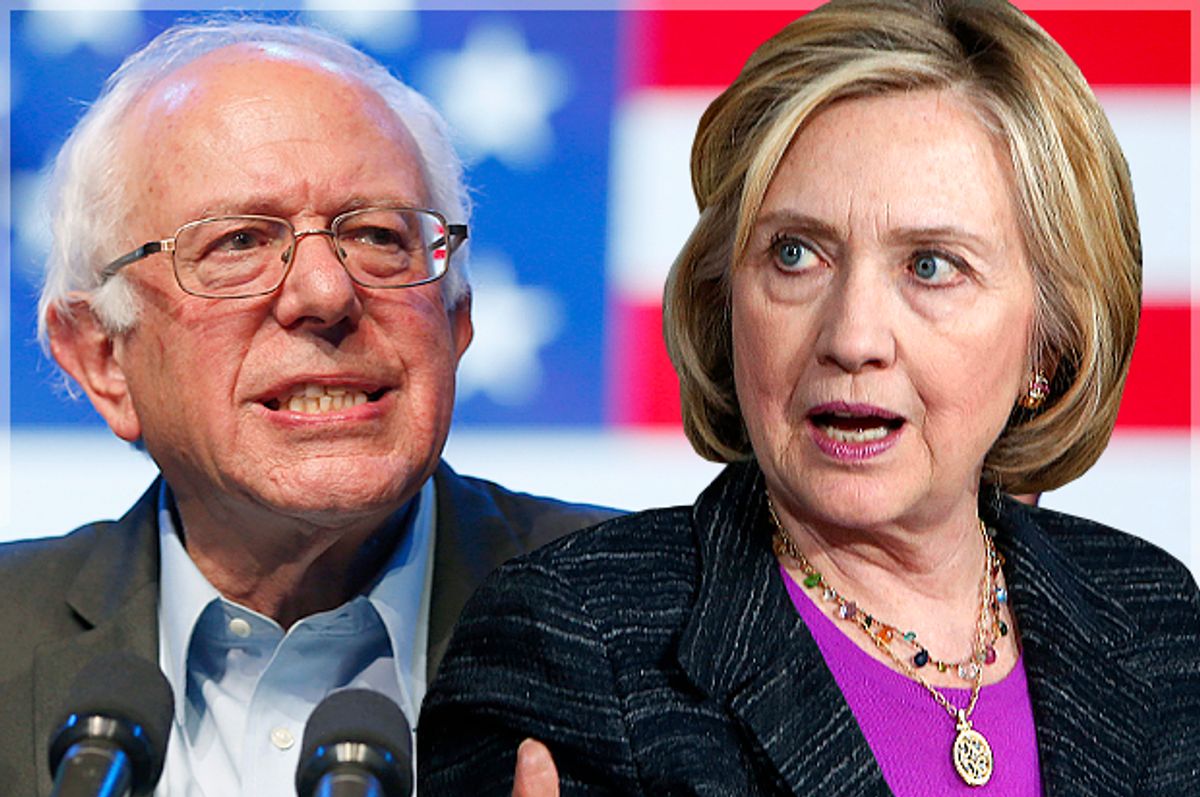Bernie Sanders’s presidential campaign has excited progressives and socialists alike in a way that’s unparalleled in modern American history. So far, however, Hillary Clinton has been able to draw substantial support from people who are sympathetic to Sanders’s views and his record, but believe that Clinton is the most electable candidate in the general election against what is sure to be an ultraconservative goblin. However, as polls over the past couple of months have shown, Sanders is showing signs that he’s every bit as a electable as Clinton — and when matched up against certain Republican candidates, he’s polling even better than she is.
In Sanders’s neighboring state of New Hampshire, he has exploded to a 14 point lead over Clinton in the latest Monmouth University poll. New Hampshire is a complicated state politically, a libertarian-leaning bastion in liberal New England, but Sanders fits the role of a rough, charismatic party outsider that New Hampshirites have a history of supporting, so it’s not such a surprise that Sanders is wooing them this time around.
(Sanders, by the way, leads every Republican he was matched up against in New Hampshire by double digits.)
What’s a bit more surprising is the ground Sanders is gaining in Iowa. The latest Quinnipac poll found that Sanders now leads Clinton by 5 percent in the earliest primary state, whose caucus is on February 1. If Sanders is able to beat Clinton there, it’ll give him a decisive victory in the two earliest states in the country (which also happen to be swing states).
And don’t underestimate the importance of Iowa: Barack Obama’s victory there in January 2008 solidified him as a serious threat to Clinton.
When put in a hypothetical matchup against the top three Republican candidates in Iowa -- Ted Cruz, Donald Trump, and Marco Rubio — Sanders polls much better than Clinton. He leads Donald Trump by 13 points (to Clinton’s 8), ties Marco Rubio where Clinton loses by 5 points, and in the biggest surprise of all, he leads Ted Cruz by 5 points where Clinton is losing by 4 points. That’s a nine point Democratic swing, and six crucial electoral votes, if the numbers in this polling continue to hold up.
Nationwide, this same trend holds. Sanders does just as well as Clinton against Trump, slightly better than Clinton against Cruz, and slightly better than Clinton against Rubio. An optimistic Sanders supporter might even be inclined to think that Sanders is, ironically, the most electable Democratic candidate.
Sanders is doing this despite starting out at a complete deficit of name recognition across the country. Some of that is the DNC’s fault, scheduling just six debates, including multiple on Saturday evenings, but Sanders is also running in the Democratic primary after having never been a member of the party, so he lacked the organizational infrastructure that Clinton has from being one of the most high-profile Democrats for nearly 25 years.
Of course, this polling could swing in either direction as Sanders becomes more recognizable to the broader American public. And Sanders is all but guaranteed to lose South Carolina to Clinton, so counting her out on the strength of two early primary states is ill-advised; likewise, no one’s going to argue that Clinton has any chance of losing the endorsement battle, or lack in Democratic Party clout to help push her to the nomination.
But Sanders has nonetheless made leaping gains in popularity as the public has started to become familiar with him, and this polling shows that voting for him isn’t just a vote for the idealist candidate who has no chance of winning in November. That is an exceptionally important development.
As of right now, a vote for Sanders is not like a vote for George McGovern in 1972, and that makes the fight more about his reliably progressive record and his unique vision of democratic socialism, rather than about whether he’s too much of an idealist to win a national election. That’s the argument that Bernie Sanders wants to have, and one he has a chance of winning on.

Shares